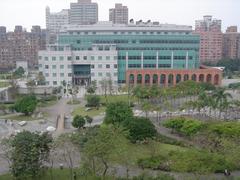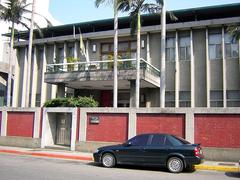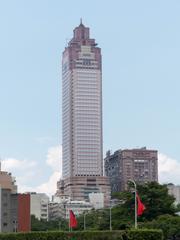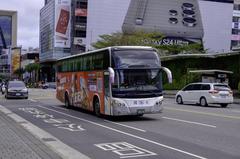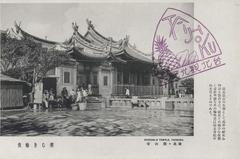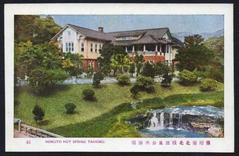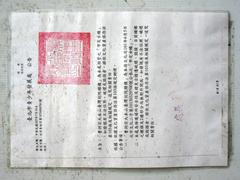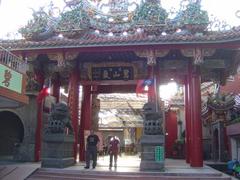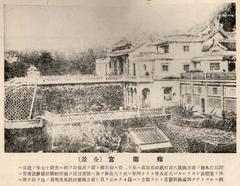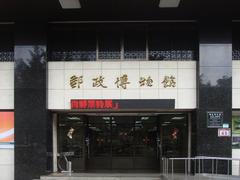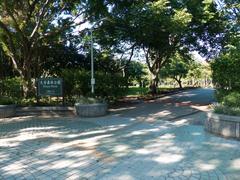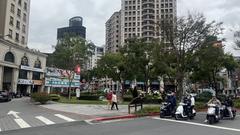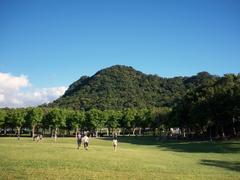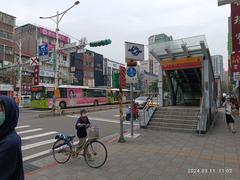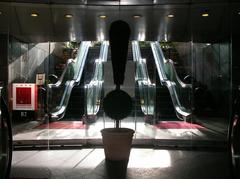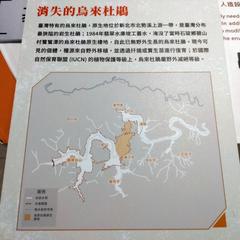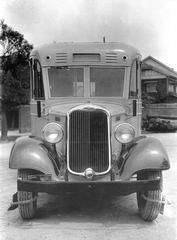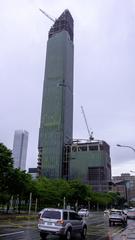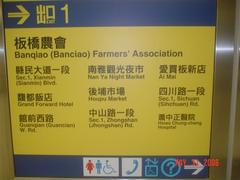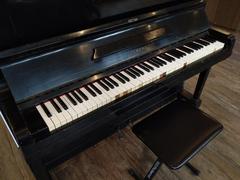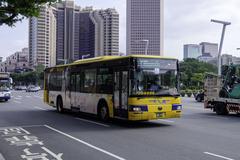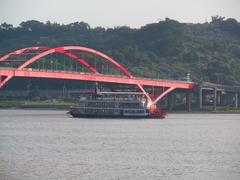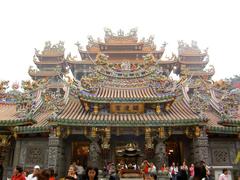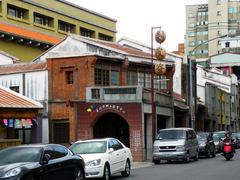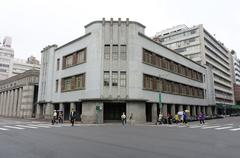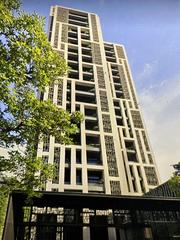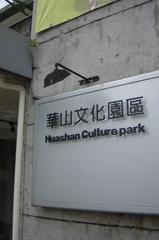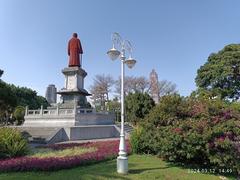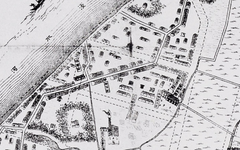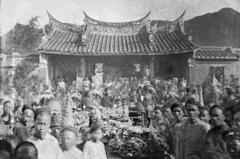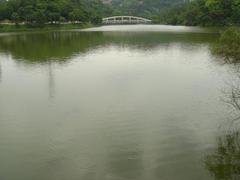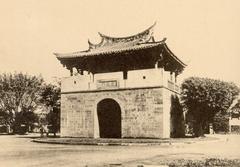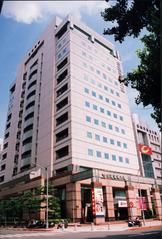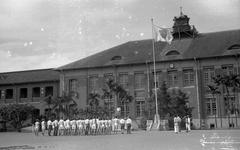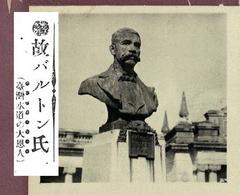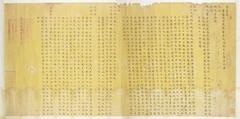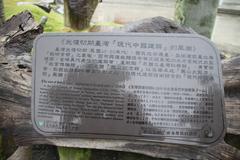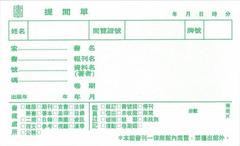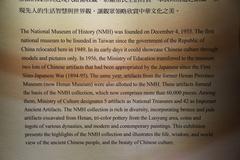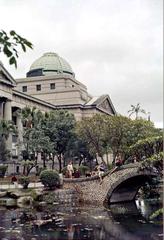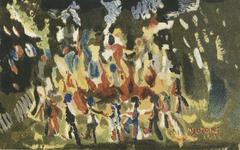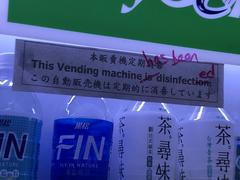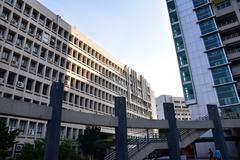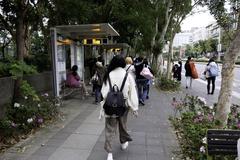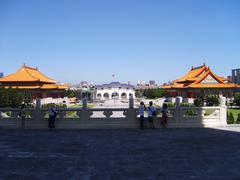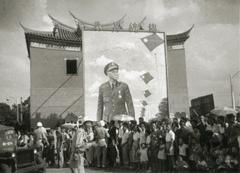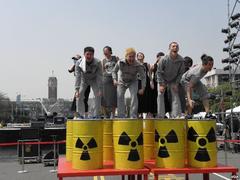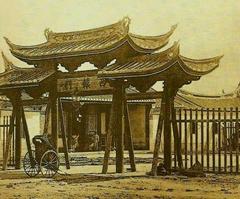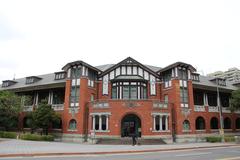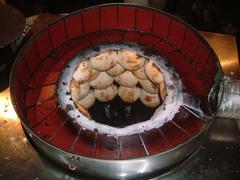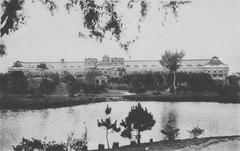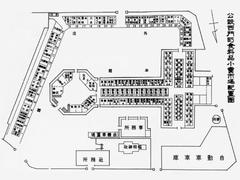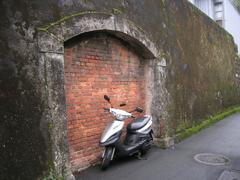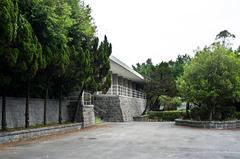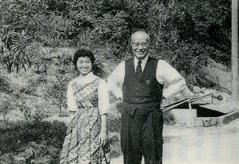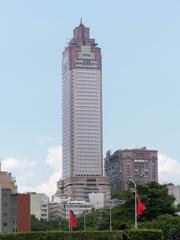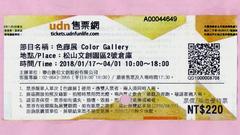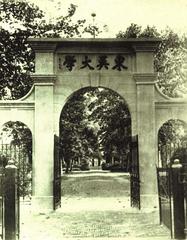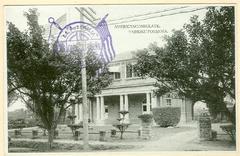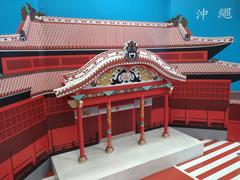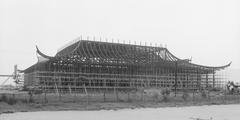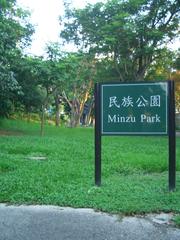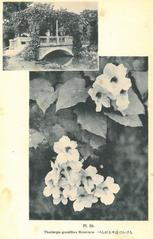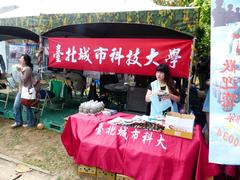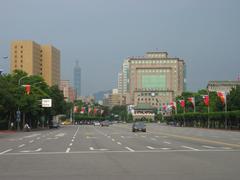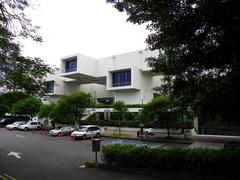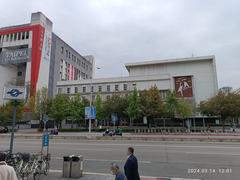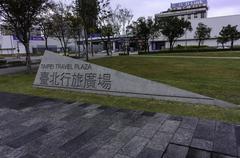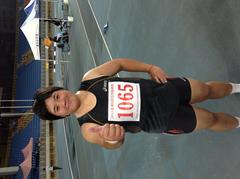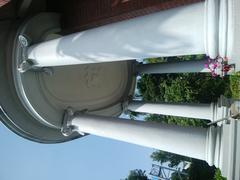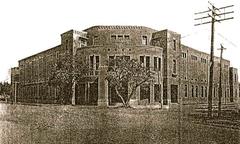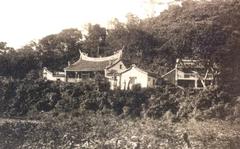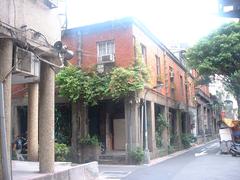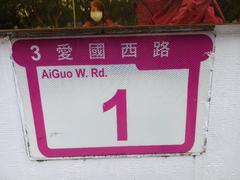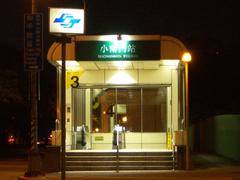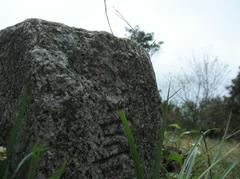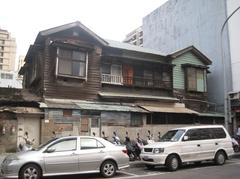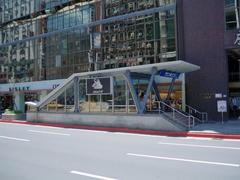
Cafe Astoria Taipei: Visiting Hours, Tickets, and Guide to a Historic Landmark
Date: 04/07/2025
Introduction
Cafe Astoria Taipei stands as an enduring symbol of Taiwan’s layered cultural identity, blending Russian émigré heritage with the evolving spirit of modern Taipei. Founded in 1949 by Russian exiles, this venerable establishment introduced Taiwan to Western-style pastries and became a haven for artists, writers, and political figures during some of the island’s most transformative years. Whether you are a history buff, a lover of pastries, or a cultural explorer, Cafe Astoria offers a unique and immersive experience in the heart of Taipei.
This guide provides a comprehensive overview of Cafe Astoria’s historical significance, practical visitor information—including visiting hours, ticket policies, accessibility, and nearby attractions—and tips for making the most of your visit to one of Taipei’s most iconic historical sites (Astoria official history, Taipei Times, Taipei Travel, My Guide Taipei).
Table of Contents
- Introduction
- Historical Background
- Cultural and Literary Significance
- Russian and European Heritage
- Influence on Taipei’s Café Culture
- Visiting Cafe Astoria: Practical Information
- FAQ
- Tips for a Memorable Visit
- Conclusion
- References
Historical Background
Origins and Founding (1949)
Cafe Astoria’s story began with Russian émigrés fleeing the upheavals of revolution and war. After leaving Russia, George Elsner and his compatriots opened the original Café Astoria in Shanghai before political changes forced them to seek refuge in Taiwan. In 1949, Elsner and six Russians, alongside Taiwanese partner Archibald Chien, established Cafe Astoria at 7 Wuchang Street. The cafe quickly became a sanctuary for the Russian diaspora and a pioneering force in Taiwan’s nascent Western-style pastry scene (Astoria official history).
Transition and Taiwanese Ownership
In the 1950s, as global tensions and local uncertainties grew, most Russian partners sold their shares to Chien and emigrated. By 1961, the cafe was under full Taiwanese management, but it retained its Russian culinary core while adapting to local tastes (Taipei Times).
Cultural and Literary Significance
Cafe Astoria evolved into a center for intellectual and artistic life in 1960s Taipei. Renowned writers and artists, including Kenneth Pai (白先勇) and poet Chou Meng-tieh, gathered here to exchange ideas and foster creativity. The cafe’s bookstand and gallery walls, adorned with works by famous Taiwanese artists, cultivated a unique literary and artistic ambiance (Astoria official history).
Astoria’s proximity to government buildings also made it a discreet meeting place for diplomats and politicians. Faina Chiang Fang-liang and her husband, Chiang Ching-kuo, were among its prominent patrons, highlighting the cafe’s role as a cultural bridge between East and West (Taipei Times).
After closing in 1989, the cafe was revived in 2004 by Karen Chien, daughter of the original Taiwanese partner, preserving its vintage charm and continuing its legacy as a hub for cultural events.
Russian and European Heritage
Cafe Astoria is celebrated for preserving authentic Russian and European culinary traditions in Taipei. The menu features specialties like “Napoleon” and “Medovik” cakes, borscht, and classic Russian sweets, all made using original recipes passed down from the founders. The vintage décor, with wooden tables, chandeliers, and black-and-white photos, invites guests to step back into mid-20th-century Europe (Astoria official history).
Influence on Taipei’s Café Culture
Astoria introduced Taipei to the concept of the café as a social and creative space, inspiring a wave of Western-style coffeehouses across the city. Its blend of Russian, European, and Taiwanese elements helped shape Taipei’s modern café culture, now renowned for its diversity and innovation.
Visiting Cafe Astoria: Practical Information
Visiting Hours & Tickets
- Standard visiting hours: Daily, 9:00 AM – 9:00 PM
- Entrance: No tickets or entrance fee required
- Reservations: Not required, but recommended for groups or during weekends and special events
(Taipei Travel, My Guide Taipei)
Location & Accessibility
- Address: 2F, No. 5, Section 1, Wuchang Street, Zhongzheng District, Taipei
- Nearest MRT Stations: Ximen, NTU Hospital, Taipei Main Station, Beimen
- Wheelchair Access: Main entrance and bakery on the ground floor are accessible. The second-floor café is accessible only by stairs, so guests with mobility impairments should call ahead for accommodations (Taipei Travel).
Menu Highlights & Pricing
- Signature dishes: Russian borscht, pork knuckles, fish jelly, walnut marshmallows, Russian walnut cake, traditional pineapple cake (awarded “Taiwan’s Best”)
- Beverages: Russian rum coffee, specialty teas, Western-style coffee
- Pricing: Pastries NT$60–NT$150; beverages NT$100–NT$200; set meals NT$300–NT$500
- Payment: Cash, credit cards, and mobile payments accepted; carrying cash is advisable for small purchases (Near Place)
Etiquette & Visitor Experience
- Dress code: Smart-casual preferred
- Atmosphere: Quiet, reflective, with a literary and artistic ambiance; photography is permitted but be mindful of other guests
- Language: Mandarin and some English; English menus available
Nearby Attractions
- City God Temple: Directly across the street
- Ximending Shopping District: Short walk
- Presidential Office Building and National Taiwan Museum: Within walking distance
(Taipei Travel, My Guide Taipei)
Souvenirs & Photography
- Bakery gifts: Pineapple cake, Russian walnut cake, marshmallows, packaged for takeaway
- Photo spots: Vintage décor, bakery displays, and exterior signage are popular with visitors
Frequently Asked Questions (FAQ)
Q: What are Cafe Astoria’s visiting hours?
A: Daily from 9:00 AM to 9:00 PM. Check official sources for holiday updates.
Q: Are tickets or reservations required?
A: No tickets required; reservations suggested for groups or weekends.
Q: Is the café wheelchair accessible?
A: The bakery on the ground floor is accessible; the café on the second floor is not, due to stairs.
Q: Can I take photographs inside?
A: Yes, but please respect other guests’ privacy.
Q: Are there vegetarian or allergy-friendly options?
A: Some pastries contain nuts, eggs, and dairy. Ask staff for details or prepare a chef card in Chinese for dietary needs.
Q: Are guided tours available?
A: No formal tours, but staff are happy to share the café’s history.
Tips for a Memorable Visit
- Visit on a weekday morning or mid-afternoon for a quieter experience.
- Sample signature Russian pastries and traditional pineapple cake.
- Explore both floors to appreciate the historical ambiance and bakery offerings.
- Combine your visit with nearby historical sites for a richer Taipei experience.
- Chat with staff about the café’s storied past—they often have fascinating anecdotes.
Conclusion
Cafe Astoria is more than a café; it’s a living museum of Taipei’s cosmopolitan history, a testament to the resilience and adaptability of its founders, and a cherished gathering place for generations of writers, artists, and travelers. From its introduction of Western-style pastries to its role as a cultural and intellectual hub, Astoria continues to inspire and delight. Plan your visit to experience the unique blend of Russian heritage, literary tradition, and Taiwanese hospitality that defines this historic landmark.
For the latest updates, visiting hours, and travel tips, consult the Taipei Travel website and My Guide Taipei. Enhance your Taipei adventure by exploring related cultural attractions and sharing your experience on social media.
References
- Astoria official history
- Taipei Times
- Taipei Travel
- My Guide Taipei
- Near Place
- Taiwan News
- Taiwan Obsessed
Images: For the best experience, include high-quality photos of Cafe Astoria’s exterior, interior, and signature dishes, with descriptive alt text such as “Cafe Astoria Taipei historic bakery entrance” and “Traditional Russian walnut cake at Cafe Astoria.” Use real photographs or official media for authenticity and SEO value.


